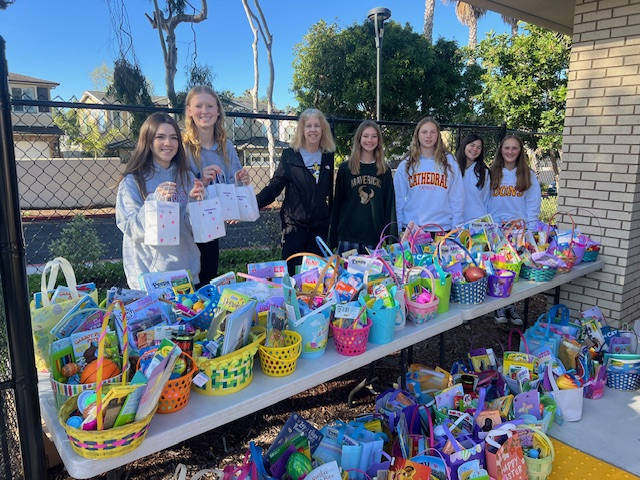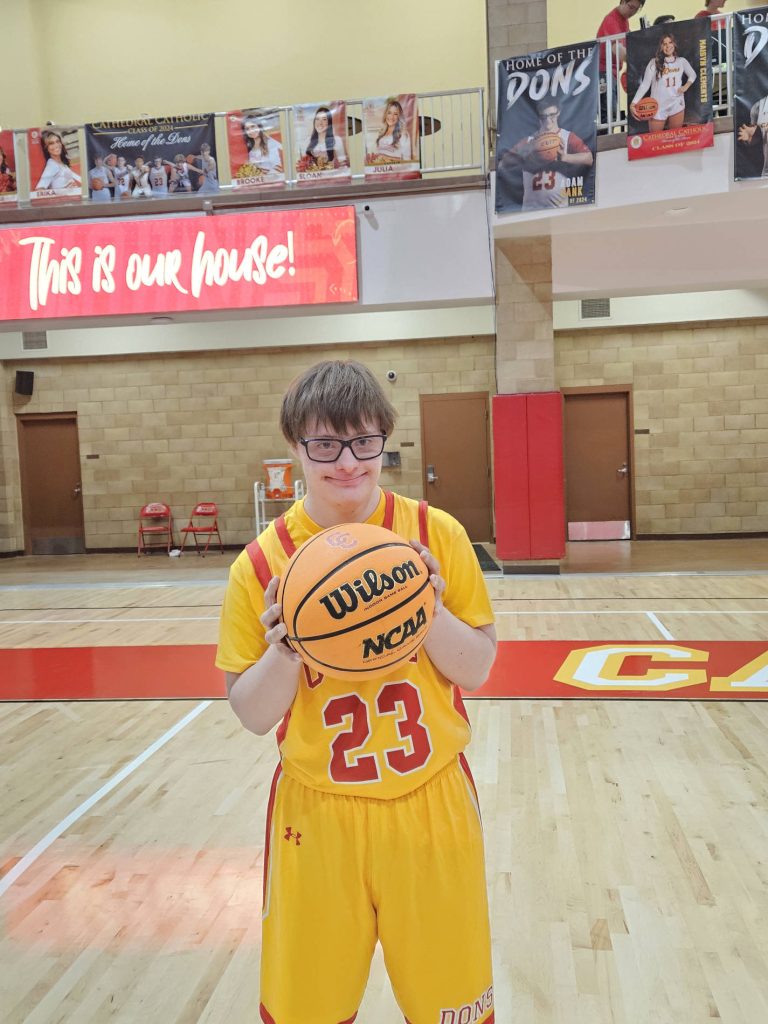SAN DIEGO — If Easter Sunday is special for Catholics, it’s a day the Canseco family of San Diego will never forget.
The Canseco brothers are extraordinary. The young men have disabilities that had precluded them from receiving the sacraments of initiation. That changed on April 9. After months of preparation and adjustments made by everyone involved in the process, the brothers received the sacraments from Father Pedro Navarra at a private ceremony at St. Joseph’s Cathedral.
Víctor Manuel and Elías Antonio are 23-year-old twins who both have autism, although Victor’s is more severe. Juan, 21, and Miguel, 15, are dyslexic and have speech delays. The twins received their First Communion, while Juan and Miguel were baptized, and received their First Communion and confirmation.
Candelaria “Candy” Gómez met María Angélica Rubio, the young men’s mother, when she began to work at the family market. At one point, the mother told her that she was looking for someone to teach her sons catechism. She did not know that Gómez had previously served as a catechist at the cathedral, which happens to have a formation program for individuals with special needs.
Gómez immediately contacted Alicia Gutiérrez, the director of Spanish-language ministry and faith-formation at that parish.
“At the cathedral, all children are welcome, regardless of their disability,” Gómez said. “I’m grateful that Alicia supports special-needs children and always makes sure that catechists have all they need to teach them.”
Gómez explained to her the young men’s situation, including that Juan’s work schedule conflicted with regular class times.
“That’s not a problem,” Gutiérrez told her, and proceeded to organize classes for the brothers on days and times that worked for them. What’s more, she invited Gómez to be their instructor.
“They were glad when they were told that I was going to give them catechism classes,” Gómez said.
Their mother recalled that Gómez assured her that her sons would indeed receive their sacraments.
“Candy was great with us. She helped us so much,” she said. “She even helped Victor to learn how to receive Communion.”
Gómez began teaching the young men in private classes once a week last September.
“We began to modify the classes little by little,” the catechist recalled. “First, they lasted 30 minutes, then 45. We increased the time according to what they could tolerate.”
There were other accommodations.
“Víctor doesn’t speak,” she added. “With him, we had special practices so he could learn.”
One of those was how to receive Communion.
“He surprised us because he does it very well, despite his severe autism.”
The mother recalled the moment he received that sacrament.
They had practiced days before, she said, but Gutiérrez would not actually give him the Host, but rather would pretend to give it to him.
Víctor was left waiting, wondering why she was not giving it to him.
“On the day of his First Communion, he received it with joy. He knew to incline toward the altar and to bring his hands together to receive the Host,” said the mother, her voice full of emotion.
Elías gets stressed and nervous when there are a lot of people around or it’s noisy.
“We have to ask him if he wants to do something,” the catechist said. “You can’t obligate him to do it because he would not come back to class. If he’s not ready to do what he’s supposed to do, then we wait for him.”
The instructor would patiently take the time to explain the things the young man did not understand.
“Sometimes, we had to repeat a class,” the mother said.
The diocese also made adjustments. Given their situation, the young men could not receive their sacraments along with other catechumens and candidates at the Easter Vigil. They could not tolerate that long of a Mass.
The diocese granted permission for them to receive them during a private ceremony the following day.
The catechist recalled that Juan had asked her to be his madrina, or sponsor.
“I feel fortunate that he picked me.”
The mother said that Víctor had woken up angry on the day of the ceremony and was having a tantrum just before they entered the church.
“When we stepped inside, something calmed him down; he began to listen to the song and started applauding,” the mother said. “He tolerated the entire ceremony, behaving well, applauding when others did so.
“He knew to bow before receiving the Host, as if it was something divine to him. It was so beautiful that I just have to say, ‘Thank you, my Lord.’”
How did the mother feel after her sons had conquered this milestone?
“I finally did it!”
Some parishes offer formation classes for individuals with special needs. Check with your neighborhood parish or call the diocesan Office for Evangelization and Catechetical Ministry at (858) 490-8232.









